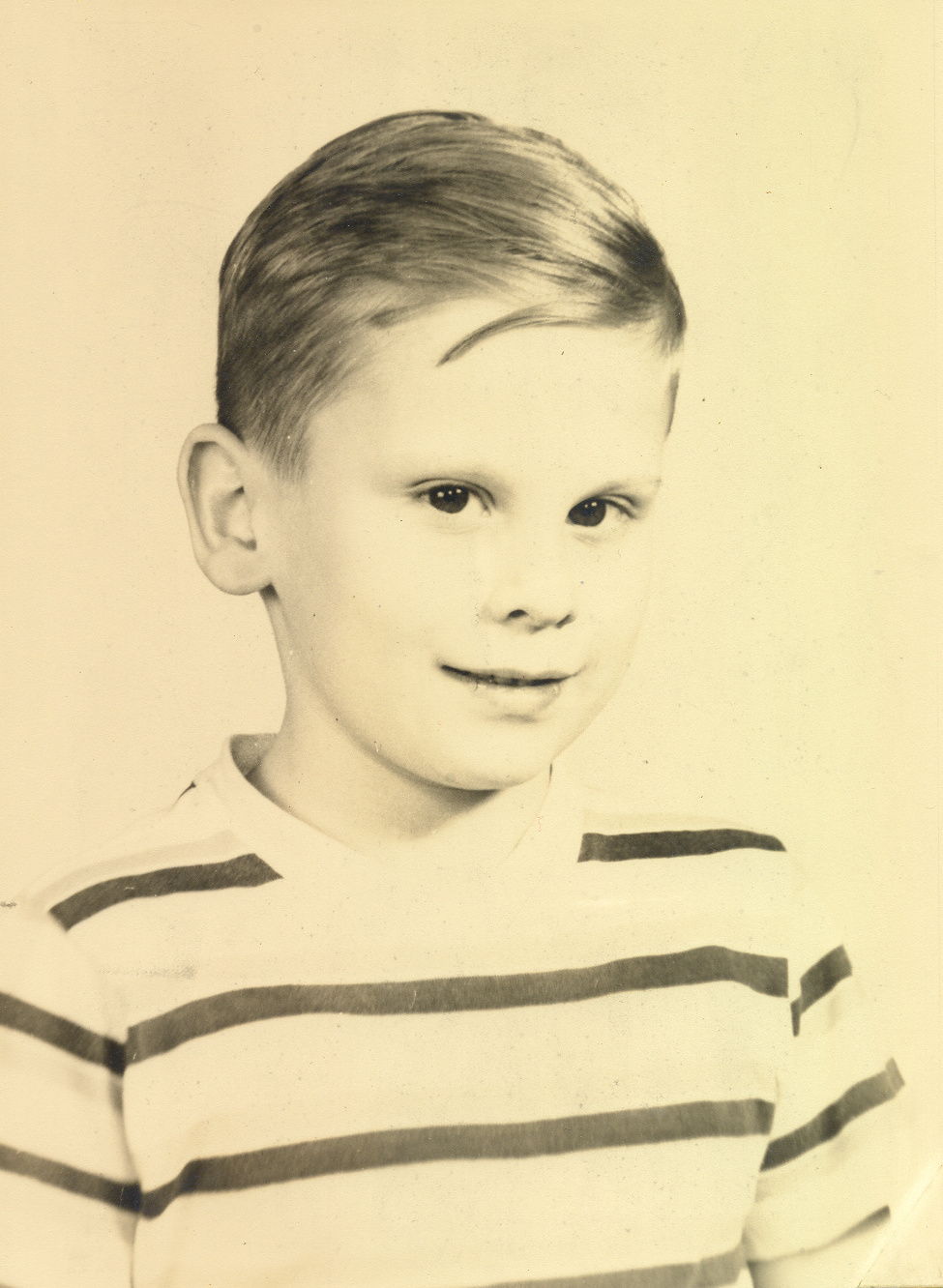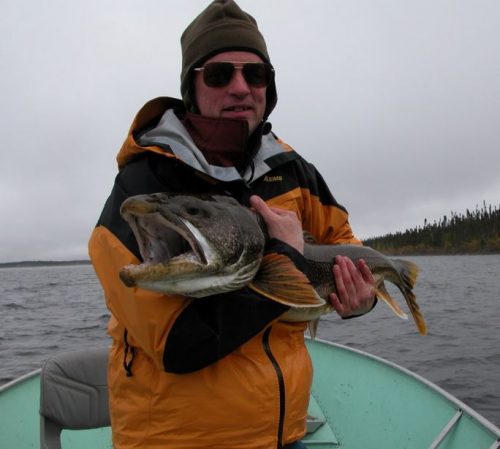
Casper Martin & friend.
Here are two witty and hilarious short stories by Casper Martin, a student of mine at Vermont College of Fine Arts this semester. It’s a rare student who delights me this much, makes me chuckle and admire, but Casper has an outrageous sense of humour and a slightly pomo aesthetic that puts a premium on reversal and surprise and jokes that make you think. Both these stories were written from an exercise I sometimes give students. If you want to try to look it up, the exercise along with an essay on the short story (“Short Story Structure: Notes and an Exercise”) can be found in my book Attack of the Copula Spiders and Other Essays on Writing (Biblioasis, 2012). It will also be reprinted in a book of my essays coming out next year. In any case, these two stories, brief and stripped down, are elegant in their simplicity and concept. Both stories turn a genre on its head. The kid gunslinger (practicing his chops on the town’s ONLY tree) and the encounter with the Angel of Death. The Angel of Death story is particularly intriguing because it manages to combine a tale about death with a story about sex, seduction, comedy and the spirit of life. I’ve never seen such a positive, lively and unsentimental death bed scene. This is something else.
dg
Gunslinger
.
Ambitious, young Mathew Singleton lusted to be a gun fighter—Kid Matty—but he had never killed a man. He saw that as an obstacle to his success, an obstacle he had to overcome as quickly as possible, while he was still young and his reflexes were still sharp as needles.
He rolled a forty-five-caliber cartridge between his thumb and forefinger, thinking he wanted to be the one to deal out those round-nosed lead bullets in a time without safety or protection. The only defense was to shoot faster and hit your target.
Mat didn’t worry about getting killed. He thought everything would take care of itself if that happened. When he thought of the possibilities, he understood that he couldn’t kill a drunk or a storekeeper. He had to kill a gunfighter. He didn’t want to be known as an assassin of ordinary people.
♣
Young Mat walked into the Still Water Saloon and surveyed the crowd. His eyes fell upon Davey McBride, a gunfighter so famous he could be found in his own dime novels. Mat’s heart jumped inside him. McBride sat at a poker game with his back to the wall. Young Mat walked over and began staring at McBride. Mat wondered if this would be the moment of his death. McBride said, “Take a seat. This game needs new blood.”
Mat resisted saying he didn’t have the money. Money hadn’t seemed important until this instant. He said, “I want to kill you.” And he almost fell over in fear of what he had said.
McBride looked him over, measuring. He said, “You get right to the point, don’t you, kid?” When Mat didn’t answer he said, “Why don’t we play poker instead? There’s less tears in poker than gun play.”
Mat thought he had gotten around playing poker, but there it was right in his face again. He still didn’t want to admit he had no money. Mat almost closed his eyes, but he knew he had to keep his eyes on McBride. He thought this would be the moment of his death. He said, “I mean it. I want to kill you.”
McBride studied the kid. He said, “Ever body wants to kill me. Don’t worry about it, kid. It’s OK as long as you don’t act on that desire. Come on. Take a seat. Play some poker. You might get to like me.”
Mat thought of drawing and shooting, but now he kind of liked McBride. McBride was shuffling the cards. He thought he could kill him right then. With McBride’s hands above the table and away from his gun Mat knew McBride would be slow on the draw, but Mat wanted to win a fair fight. Mat decided he couldn’t get out of being broke. He said, “I don’t have enough money to play poker with you.”
McBride said, “Well then, you should get a job, earn some money and come back and play poker with me.”
Mat heard laughter behind him. He held his hands out to his sides like he was going to draw his gun and fire. He said, “Are you making fun of me?”
McBride said, “I don’t make fun of people. I have enough people who want to kill me. I’m just giving advice on how to get money so we can play cards.”
Mat was back to not knowing what to say. He said, “I want to kill you.” And he walked out between the swinging saloon doors.
♣
Two days later Mat was back at the Still Water. He sat down at the poker table with McBride. McBride said, “You took my advice. I can see it in your eyes. You got a job, you earned some money and now you want to give it to me. Very good. That’s much better than wanting to kill me.”
Mat said, “I took money from the offering plate in church. If you have fast hands, you can put a little in with one hand and take a lot out with the other and nobody notices a thing.”
McBride said, “I better watch you, kid. You must have really fast hands. I don’t like that in people who want to kill me.” McBride paused. When Mat didn’t answer, he said, “How much did you get from the church?”
Mat didn’t want to say that he made up the story and still didn’t have money to play poker. He said, “I don’t think I want to give you the money I stole from church. I think I better hang onto it and put it back in the offering plate on Sunday.”
McBride smiled at him. He said, “I think I like you. You’re an upstanding citizen. You probably don’t want to kill me.”
Mat didn’t hesitate. He said, “I want to kill you.”
McBride said, “What you got for a gun?”
Mat said, “A Colt 45 1873 Peacemaker.”
McBride said, “You want to kill me with a Peacemaker? That just doesn’t sound right.”
Mat said, “Forty grains of black powder moves a 255-grain round-nosed lead bullet right along. I been practicing on the old elm tree just outside of town. You should see the holes in it.”
McBride said, “So that’s you who’s killing our tree. It’s not an elm. There isn’t an elm in this whole state. It’s a cottonwood. Maybe if you kill it, you’ll get a taste for killing, but a tree’s not a man.” McBride paused. Mat said nothing. McBride went on, “I have no passion left in me. I don’t hardly want to draw a gun, but I will. Don’t make me do it boy.”
Mat said, “I seen your book, The Merchant Of Death. I know all your tricks, old man.”
McBride laughed. He said, “Learn to read. That book’s not about me.”
Mat said, “Yeah, well I know all the tricks in that book. That’s all I need for you.”
McBride laughed again. He said, “That book’s about Whiplash O’Keefe.” McBride paused and then said, “I killed him. Are we going to play cards or not?”
Mat walked out of the Still Water through the swinging doors.
♣
The next day, as Mat shot the cottonwood tree, he began to wonder whether killing McBride might be a bad plan. Mat put a bullet into what looked like a squirrel hole and a dove flopped out dead. He saw its blood where it fell on the ground. The sight shocked him. He wondered how it would feel to kill a man. He could move his gun hand quickly and his aim was sure, but he wondered about aiming at a man instead of a tree. He saw McBride’s face in his mind and he nipped a small branch from the cottonwood, catching it precisely where it met the trunk, just where he imagined hitting it.
Mat liked to shoot things, but he didn’t know if he loved it. He never sighted down the barrel, always shooting from the hip. He wondered whether that was what he was doing with McBride, shooting from the hip. Maybe he should take his time and study the situation before going any further, but shooting from the hip seemed to work against the cottonwood. He sighted down the barrel at a small branch and hit nothing. He had no idea where the bullet went.
♣
The next day, Mat was back at the Still Water and McBride was sitting at the same poker table. Mat said, “Do you ever move? This is the only place I’ve ever seen you.”
McBride said, “I been known to move pretty quick.”
Mat couldn’t see McBride’s hands. His heart sped up. He said, “Put your hands where I can see them.”
McBride said, “Why should I?” When Mat just stood there with his hands out to his sides like he might draw, McBride said, “Don’t be afraid. I don’t want to kill you.”
Mat said, “Yeah, well, I want to kill you.”
McBride looked like he was getting angry. He said, “What’d I ever do to you?”
Mat said, “It’s nothing personal. I just want your job and killing you is the only way I know to get it.”
Clearly angry now, McBride said, “Are you stupid? Killing a man is as personal as it gets. You’re taking everything he ever had and everything he’s ever going to have away from him.”
Mat said, “It’s just business.”
McBride said, “What business you in? It doesn’t pay very well. You have to steal from the offering plate in church to get money to play poker. My job’s sitting here playing poker. How you going to do my job with no money?”
Mat was getting angry. He thought of pulling his gun right then, but he couldn’t see McBride’s hands. He suddenly realized that McBride wanted him to pull his gun. McBride wanted to kill him right then. Mat said, “So long.” And he turned to walk out.
McBride called after him, “Don’t go away angry. I’ll buy you a whisky.”
Mat turned around. He said, “I never could understand why men drink whisky on a hot day to quench their thirst.”
McBride said, “Thirst’s got nothing to do with it. Have one. You’ll see.”
But Mat wasn’t listening. The desire to live pulled him through the swinging doors.
♣
Mat was back at the cottonwood shooting it again. Someone in town yelled at him. “God dammit, stop killing this town’s only tree.”
Mat shouted back, “Fuck you sod buster.” Then he said quietly, “Or storekeeper, fuck you too.”
Mat understood for the first time that it was the only tree in the whole town. It wasn’t right in the town, but he couldn’t think of another tree in the area and he was killing it just so he’d be able to kill McBride. He wondered if he would be able to kill McBride. He put his Colt 1873 Peacemaker in its holster and then drew and fired as fast as he could. It felt very fast and he hit the squirrel hole the dove had been in. He could see splinters come out when the bullet hit. He did it time after time. Each time seemed faster than the last and he hit everything he aimed at. It felt smooth and effortless. He knew he could do it all day, but then when he went to reload the Peacemaker, he only had two bullets left and no money to buy more.
Mat had to wonder what he was doing. Why did he want to kill MacBride? Did he want to be the one sitting at the poker table talking to kids who wanted to kill him? He only had a vague idea how to play poker.
And did he want to be in a town that only had one tree? He was ready to pack it in.
♣
As Matt walked back into town, he saw McBride in the street. He said, “Glad to see you’re not stuck to that poker table.”
McBride said, “You still want to kill me, kid? Now’s the time. I heard you say you want to kill me one time too many.”
Mat began to take in the situation. He was in the middle of the street. McBride was in the middle to the street. They were about twenty yards apart, facing each other. McBride had his hands out at his sides, ready to draw. Mat had only two bullets in his gun. He couldn’t help but worry he might need three shots to kill McBride. He said, “Wait a minute.”
McBride said, “You turning yellow after saying you want to kill me so many times?”
Mat was getting angry. After the way he had been shooting at the cottonwood, he thought he could probably beat McBride, but he knew many men, including Whiplash O’Keefe, had thought that. He tried to remember The Merchant of Death. Maybe it contained a secret that would save him, but his mind emptied. He said, “Can’t we talk about this?”
McBride said, “I want to kill you, you yellow dog. And it’s personal. You understand that now?”
Mat could see the round-nosed lead bullets in McBride’s gun belt. He wonder whether he feel it when one hit him. Mat said, “I don’t want to kill you any more.”
McBride said, “Too late. I want to kill you. Draw or turn around and walk out of town with nothing but the shirt on your back.”
Mat didn’t know why, but he said, “OK.” And before he knew it, he saw McBride’s hand going for his gun. It looked slow, but Mat knew it was fast and without thinking he felt himself going for his gun.
Mat expected to see his bullet hit McBride the way he had seen his bullets hit the cottonwood, but he saw dust kick up in front of McBride and then he saw blue sky. He watched a dove fly over.
Mat didn’t know what had happened. Nothing hurt, but he was lying on his back and couldn’t sit up and he had to cough a little. Then he saw McBride standing above him. McBride said, “I got you through the lung. I’m losing my touch. I was aiming at your heart.”
Mat said, “Why’d you draw on me? I wasn’t ready.”
McBride said, “The one who draws first wins. Remember that, kid.”
Mat didn’t say anything. He thought about shooting McBride. Mat wanted to put a bullet through McBride’s Adam’s Apple. He still had one bullet, but he didn’t know where his gun had gone. McBride said, “What’s your name? I should know who I kill.”
Mat said, “Call me Kid Matty.
§
The Angel of Death
.
Old Gustavo Kintenilla lay in his deathbed in Holy Family Hospital. He thought, Jesus, I wish I could get laid one more time. Maybe if I take Viagra and grab the nurse. But wait a minute — I don’t have any Viagra and the nurse is stronger than I am. She lifts me up to bathe me. That’ll never work.
She bathes me, so she’s seen my naked body and it had no effect on her. Christ Almighty, the body that used to drive women crazy had no effect. She could have been doing the laundry. That’s how exciting she found me. I might as well be dead. She sees me as dead, just waiting to be carried off.
Maybe if I could get a boner, if she saw my manhood in its glory, maybe that would change the context from bath to sexual encounter. He began to fondle his penis, hoping to make something happen, but he got no response. It felt like something soft and warm that had nothing to do with him. He thought, Jesus, I wish I had just one Viagra pill. But then he thought again and wished for two or three, but he began to worry that he would never see even one.
♣
At midnight that night, a beautiful apparition appeared in the room with him. He said, “Are you bringing me my Viagra. I knew my prayer would be answered.”
She said, “I heard no prayer. I am the angel of death. I am here to take you.”
He said, “The grim reaper? Here for me?”
Hovering above the bed, she said, “You don’t rate the grim reaper. You’re an ordinary man. You get an ordinary angel. Me.”
Gustavo felt some dissatisfaction on the angel’s part. He said, “Do you love your work?”
She burst into laughter that sounded bitter and said, “I won’t have to do it forever.”
Gustavo worked the bed to get himself into a sitting position. He felt a touch better. He said, “How long have you been doing this?”
The angel looked puzzled. She said, “I can’t remember a time when I wasn’t doing it. I walk the endless corridors of dead, but that doesn’t matter. I have to take you now.”
Gustavo thought he heard tears in her voice. He said, “What’s the rush? Why not take a little time? Make your job enjoyable.”
When she didn’t answer him, he said, “You could fuck me and then take me. You might like it; increase your job satisfaction.”
She hesitated and then said, “Mr. Kintenilla! We have standards. I can’t do that.”
He was sitting up, almost leaning forward toward the angel. He said, “You had to think about it. I saw you considering it. Call me Goose. All my friends call me Goose.”
The angel of death was touching herself in a provocative way. She said, “You’re not my friend, Mr. Kintenilla.”
He smiled at her. He said, “No wonder you’re unhappy. You have no friends.” He paused. “You could fuck me if you wanted to. I know you want to. I see you touching yourself. Wouldn’t you like a man to touch you?”
Still touching herself, the angel said, “Who wants to fuck an old man on his death bed?”
He said, “You could restore me and fuck me as the man I used to be. I was a handsome man. I know how to pleasure a woman.” He felt his groin coming to life. He said, “Look here.” And he pointed to a bulge in the sheets. He said, “Just talking to you is bringing me back. I haven’t had a boner in years without Viagra.”
Breathing hard, she said, “I have to go now. I’ll be back for you, Goose.”
♣
The next night at midnight the angel was back. She looked lovelier than Gustavo remembered, heavenly. He said, “You look so beautiful. I could die happily in your arms.”
She said, “You mean in my pussy, don’t you?”
He said, “I think I’m in love.”
She said, “You don’t know what love is.”
He said, “What do you love?” She looked down and didn’t answer, so he said, “I could rub your shoulders. They do that for me. I know how they do it to me. I could do it to you.”
She hesitated again. Then said, “No touching allowed.”
He said, “You’re the hesitant angel. You know what you want. Why not take it? The touch of a man’s hands won’t hurt you.” And he felt himself growing stronger, more in control as she turned her back to him. He kneaded her shoulders with fingers that hadn’t felt so strong in years.
The angel said, “Oh. Ooh. Ooooh.” And pulled away from him.
He pulled her back to him. He said, “Just a little more. This is good for me too. Don’t deny me this.” He pushed more deeply into her shoulders. He said, “Too deep? Does it hurt?”
She said, “I feel no pain.” And she leaned into him.
He cupped her breast. He could feel no bra under her robe. He slipped his hand beneath her robe and caressed the warm roundness of her breast. His arms felt firm and strong. He played with her nipple between his thumb and forefinger.
She pulled away and said, “Stop that! Mr. Kintenilla, I told you, no touching. Now I have to take you. Your time is up.”
He said, “Call me Goose.”
She said, “Brace yourself. This always comes as a shock.”
He moved to embrace her. She backed up. He said, “Don’t take me now. I know you want me. I felt the passion in you. Let me make you feel good.”
She said, “Damn you, Goose.” And she was gone.
♣
Goose thought, I am dead already. This is heaven. Or is it hell, with a cock-teasing, beautiful angel who let’s me fool around, but will never go all the way? Lordy, I want her pussy so bad I could cry. I would love just one more fuck before I die. But instantly he knew that was a lie. As he felt his blood moving inside his body for the first time in years, he knew he wanted more than one fuck. He wanted to go on fucking forever. But then he thought he might be a delusional old man playing out his last fantasies in his mind, that he might be dreaming all of this. Then he thought, if it’s a dream, please let me fuck her in my dream. At least, give me that.
♣
The next night at midnight, she was back. He said, “Is midnight my time? Half past is just as good, don’t you think?”
She said, “You’re overdue. I’m behind schedule.”
He said, “Heaven can wait.”
She looked him in the eyes. She said, “How do you know you’re going there?”
He felt stronger than ever. He jumped up and out of the bed as though he were a youth. He stood behind her with his arms around her, a hand on each breast. He said, “Hell can wait forever. Let’s run away together. Love will provide.”
She scoffed. “What do you know of love? You just want to fuck me.”
He said, “You want it too. You’re restoring me so you can enjoy it.” He got one hand under the front of her robe and began massaging her pudendum.
She said, “Oh. Ooh. Ooooh.” And she tried to pull away from him, but he pulled her back and pressed his penis up against her buttocks. He got one finger into her. He nuzzled her ear lobe and then bit it gently.
He said, “Are you ready for this?”
She jerked away from him, much stronger than he thought. He knew he could never control her. She, “I can’t do this. I am the angel of death. Damn you, Goose.” And she was gone.
♣
Goose cursed himself for asking. Why didn’t he just do it? He could feel her desire, her willing it to happen, but he had to say something and bring her rational mind into it. How stupid could he be?
He dreamt of her that night. He said to her, “Your pussy is exquisite.”
She said, “What did you expect? I’m an angel.”
Then she turned ugly and became death. He wanted to look away, but he didn’t. He knew his death was coming. There was no hiding from it.
Then she became beautiful again and he was a young man pursuing her, wondering if he would ever get her. He thought he would. Getting a finger in was a good sign, but then he thought it might just scare her away. She hadn’t left him on the best of terms, but she did call him Goose. He felt warm and full of hope. Then he slept without dreams.
♣
The next night at eleven twenty five she was back. She said, “Your time is midnight. You’re going tonight. We have half an hour.”
He said, “I love the word we. I think that’s thirty-five minutes we have. Maybe we can do it twice.”
She said, “Gather ye rosebuds, Goose.”
And he did.
♣
The next morning the day nurse who had come to know Gustavo Kintenilla saw his empty bed. She looked at the framed picture of him as a young man his children had brought in and she said to the night nurse who was leaving, “Goose was a handsome man.”
The night nurse looked at it and said, “He was. He must have broken some hearts.”
The day nurse said, “Did he go peacefully?”
The night nurse made a face. She said, “No. I checked on him just before midnight and he was writhing around the bed. I couldn’t restrain him. Who knew he was so strong. And then at midnight he was gone. Just like that.”
The day nurse said, “I hope he wasn’t in pain.”
—Casper Martin
.
Retired from software development at Bell Labs, Casper Martin lives in Andover, Massachusetts, with his wife, two dogs and four cats. A binge writer who hesitates to talk about the muse, he tries to understand what it is that moves him or leaves him stagnant as he fails to write on a regular schedule. After he heard the poets read at VCFA, he thought he might be able to fake what they were doing so he embarked on a three-semester jaunt through poetry where he discovered his voice tended to be invective. He now suspects faking it is no easier than producing the genuine article, and hopes to demonstrate the truth of that assertion by producing a real poem some day. Probably the kindest thing that can be said of his writing career (which began in 1973 in a creative writing course at Indiana University) is that he has great stamina. He hopes to graduate from VCFA in January after 7 (yes 7!) semesters.
.
.

 “
“





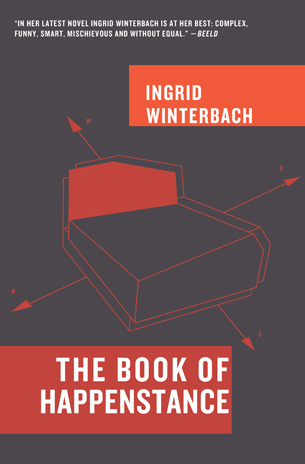
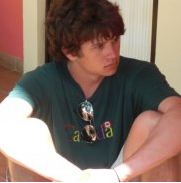
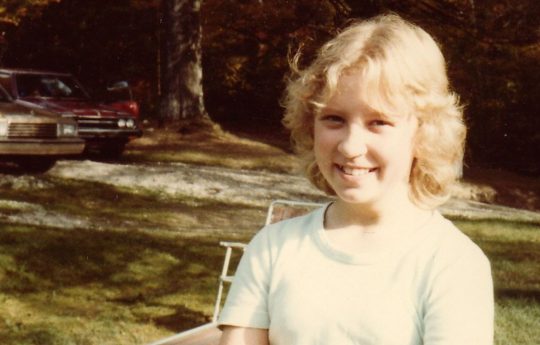


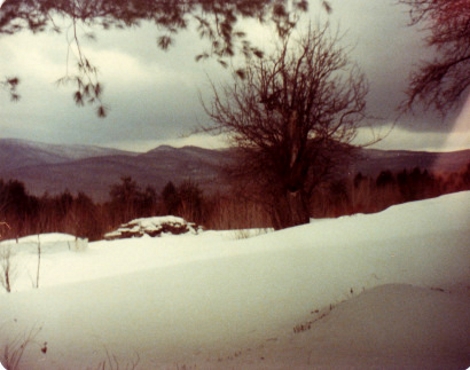
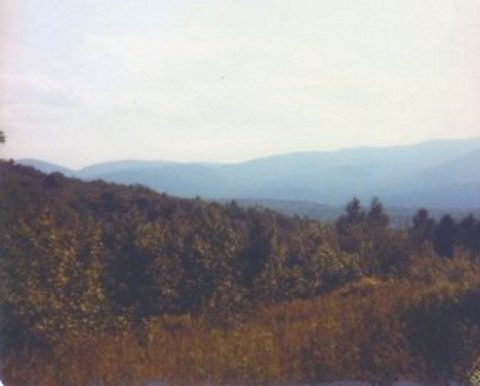













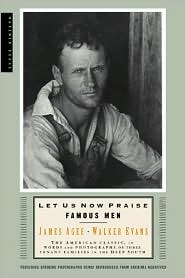






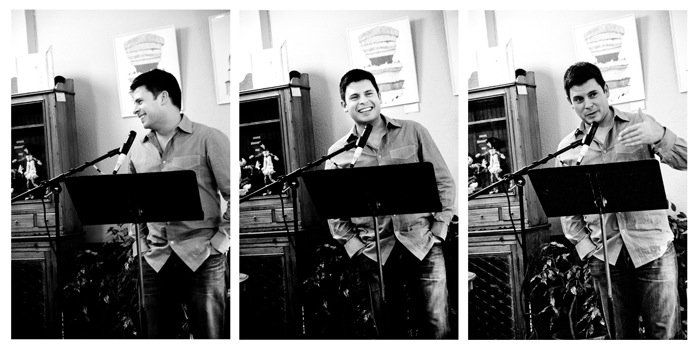



![[Now, the storm has arranged the insane]](http://dgvcfaspring10.files.wordpress.com/2011/05/1-again1.jpg)



 It’s a pleasure to introduce the first play ever published on Numéro Cinq, God’s Flea by Diane Lefer (wise friend, former colleague at Vermont College of Fine Arts—in the mid-1990s, when I had a radio show, I interviewed her, still have that tape). God’s Flea is an uproarious piece of political folk theater. Set on the Arizona-Mexico border, it borrows from the tradition of
It’s a pleasure to introduce the first play ever published on Numéro Cinq, God’s Flea by Diane Lefer (wise friend, former colleague at Vermont College of Fine Arts—in the mid-1990s, when I had a radio show, I interviewed her, still have that tape). God’s Flea is an uproarious piece of political folk theater. Set on the Arizona-Mexico border, it borrows from the tradition of 









